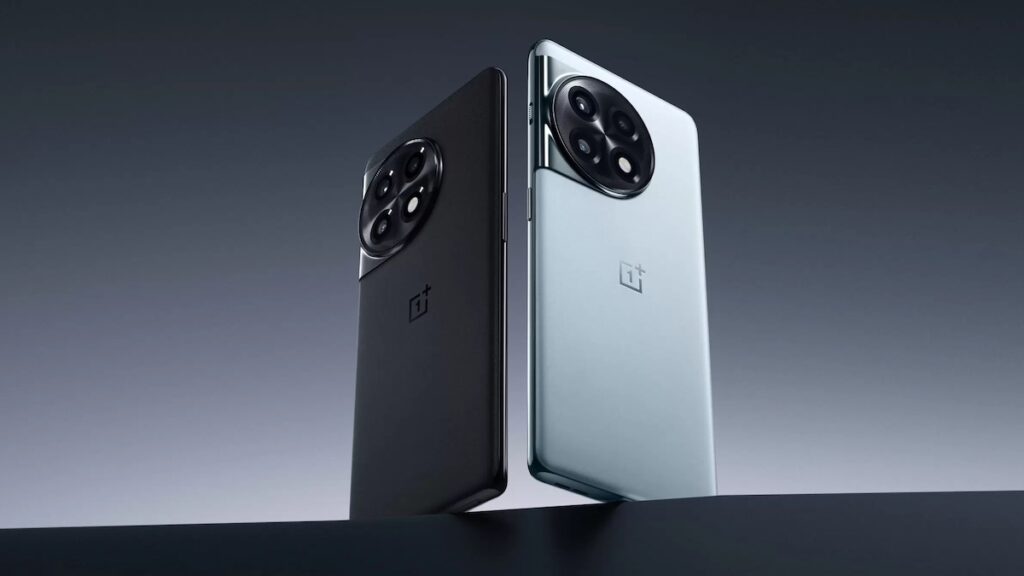OnePlus 10T vs OnePlus 11R comparison: price, specifications, design and more compared

At least in terms of number series, the OnePlus 2023 smartphone appears to be in order. The OnePlus 11 and the upper mid-range OnePlus 11R smartphones, aimed at power users, were just released by the company. The OnePlus 11R and the already released OnePlus 10T smartphone may appear to be very similar on paper at first glance, but if you look more closely, you’ll notice that the company has made subtle changes to the 11R. The Qualcomm Snapdragon 8+ Gen 1 SoC powers both phones, which are comparable in price and have similar features. Which should you purchase, then? Let’s explore what the two upper mid-range have to offer in more detail in our OnePlus 10T vs OnePlus 11R comparison.
OnePlus 10T vs OnePlus 11R price in India, availability
| MODEL | VARIANT | PRICE |
| OnePlus 10T | 8GB + 128GB | Rs 49,999 |
| 12GB + 256GB | Rs 55,999 | |
| 16GB + 256GB | Rs 55,999 | |
| OnePlus 11R | 8GB + 128GB | Rs 39,999 |
| 12GB + 256GB | Rs 44,999 |
The OnePlus 10T is offered in three memory options, including 8GB RAM and 128GB storage, 12GB RAM and 256GB storage, and the most expensive 16GB RAM and 256GB model. Pricing for the base variant starts at Rs 49,999 and goes up to Rs 55,999.
On the other hand, the OnePlus 11R comes in two variants. The base model comes with 8GB RAM with 128GB storage and is priced at Rs 39,999 as of writing this post. Its higher spec’d model with 16GB RAM and 256GB storage option will cost you Rs 44,999.
The OnePlus 10T and OnePlus 11R are both available on Amazon. They will also be offered offline through the company’s own stores as well as other multi-chain retail establishments like Reliance Digital and Croma.
OnePlus 10T vs OnePlus 11R: specifications, features, and design
Design
Both phones have a contemporary look and feel and use almost the same design language. The OnePlus 10T takes cues from its elder sibling, the OnePlus 10 Pro, in terms of design. The phone now has a flat panel on the front, with a curved back and an island for the rear camera. Given the difference between the two phones, it is clear that OnePlus chose to economise by going with an all-plastic design, which they justify with the phone’s 360-degree antenna. Another feature that has been dropped in favour of a larger battery is the company’s venerable Alert Slider, which toggles between Ring, Silent, and Vibrate. The phone does not have wireless charging or a headphone jack, but it does have an in-display fingerprint scanner.

The OnePlus 11R, on the other hand, is also influenced by the OnePlus 11, it’s older sibling that debuted at the same time. A curved OLED on the front and a curved glass on the back are two of the 11R’s biggest updates. To keep the price of the device low, OnePlus still makes sacrifices. This meant that the handset’s frame would be made of plastic, but they would also add an IR blaster and bring back the classic Alert Slider. In addition to not having a headphone jack, the phone still does not have wireless charging like the 10T.
Processor, RAM, and Storage
Both the OnePlus 10T and 11R are powered by Qualcomm’s most popular flagship processor, the Snapdragon 8+ Gen 1 SoC. This new chip promises to outperform the previous generation chip in terms of thermal performance and to increase overall efficiency by 30 percent. Three memory setups for the OnePlus 10T are offered: the least expensive is 16GB RAM and 256GB storage, which comes with 8GB LPDDR5 RAM and 128GB UFS3.1 storage.
The OnePlus 11R, in contrast, comes in two RAM variants and memory options including 8GB LPDDR5X RAM and 128GB UFS3.1 storage, & the top-end 16GB RAM and 256GB storage model.
Display
The difference between the two phones is in the display. The OnePlus 10T has a 6.7-inch E4 10-bit AMOLED panel with a Full HD+ resolution. This panel, which OnePlus refers to as a “Fluid Display,” can dynamically switch between 60, 90, and 120Hz refresh rates. This panel is also HDR10+ certified and can output HDR content on compatible apps like YouTube.

In contrast, the OnePlus 11R features a 6.74-inch P3 10-bit curved AMOLED panel with a 1.5K resolution and can dynamically switch between 40, 60, 90, and 120Hz refresh rates. The curved panel here gives the phone a more upscale appearance and feel, but it also has some drawbacks like the possibility of accidental touches, etc.
Camera
On the back, the OnePlus 10T sports a triple camera setup. The company has used this very same camera setup on its other mid-range options in the past. The primary sensor is a 50MP Sony IMX766 with an f/18 aperture, OIS, and EIS capability, which is assisted by an 8MP ultrawide angle lens and a 2MP macro sensor with a dual-LED flash. A 16MP camera on the phone is in charge of selfies.
The OnePlus 11R, on the other hand, also has a comparable camera setup. The back camera system on the handset consists of a 50MP Sony IMX890 sensor with OIS and EIS capabilities, an 8MP ultrawide angle lens, and a 2MP macro sensor with a dual-LED flash. In this instance, the 16MP selfie camera has not changed at all which is a bummer. Both phones lack the famed Hasselblad colour science and filter modes, which are offered on the more expensive OnePlus handsets.
Battery
The OnePlus 10T has a sizeable 4,800mAh battery with 150W fast charging support, but there is also the option to purchase the device with an 80W fast charger. The OnePlus 11R in contrast packs a 5,000mAh battery with support for 100W SUPERVOOC fast charging.
For all the latest Technology News Click Here
For the latest news and updates, follow us on Google News.
